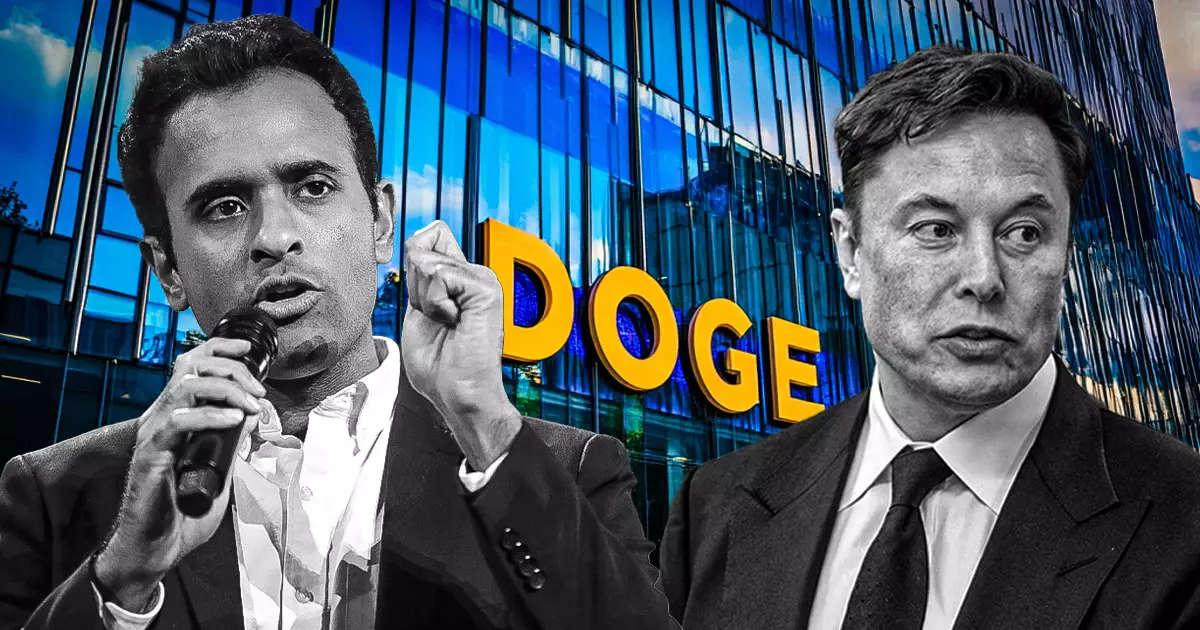The recent appointment of Elon Musk and Vivek Ramaswamy to head the Department of Government Efficiency (DOGE) marks a significant moment in U.S. politics. President-elect Donald Trump aims to dismantle bureaucratic red tape and waste within the federal government, enacting a reform agenda arguably as ambitious as the historical Manhattan Project. By utilizing DOGE, Trump seeks to optimize the staggering $6.5 trillion federal budget while engaging the citizens in a public discourse about government accountability.
At its core, the DOGE initiative embodies a blend of entrepreneurial spirit and political ambition. Both Musk and Ramaswamy represent a “startup culture” in governance. Their collective experiences in the tech and business arenas signal a shift towards prioritizing innovation and efficiency in government—a move historically rare in traditional political structures. This approach aims to elevate public engagement, signaling a pivot from top-down governance to one where citizens are invited to partake in the decision-making process.
Musk’s commitment to transparency, as stated on X, where he pledged to keep public feedback at the forefront of DOGE’s operations, indicates a paradigmatic shift in governmental interaction. His promise to create a leaderboard showcasing wasteful expenditures not only entertains but serves as a platform for public scrutiny. This interactive model represents a novel way for citizens to voice their concerns about government spendings, transforming passive observations into actionable insights.
Ramaswamy’s intention to invite public submissions on misallocation of resources reinforces the notion that government reform should reflect the populace’s experience. This participatory model is particularly crucial in a time when many Americans feel alienated from governmental processes, fostering a sense of ownership among citizens in the quest for efficiency.
Interestingly, while the naming of the department after Dogecoin has invigorated the crypto community, it also demonstrates the volatility and unpredictable nature of cryptocurrency markets. The initial excitement surrounding DOGE led to a short-lived spike in interest, yet the subsequent drop in Dogecoin’s price to $0.37 illustrates the speculative nature inherent in cryptocurrency investments. This price fluctuation highlights the challenges associated with intertwining political initiatives with financial markets, suggesting that enthusiasm can be both a boon and a bane.
Trump’s projected timeline for establishing a more efficient government by July 4, 2026—a date that symbolizes American independence—underscores a grand vision for systematic reform. However, the success of such a transformative initiative relies heavily on execution, public engagement, and the ability to withstand political opposition.
The establishment of DOGE heralds a potential turning point in U.S. governance, marrying technology and politics in an effort to streamline government operations. While the initiative is rife with challenges, it leaves open opportunities for innovation, public participation, and a reconsideration of the role government should play in the lives of its citizens. Whether this bold initiative will lead to substantive changes remains to be seen, but the efforts to engage and excite the public certainly set a provocative precedent for future reformations.

